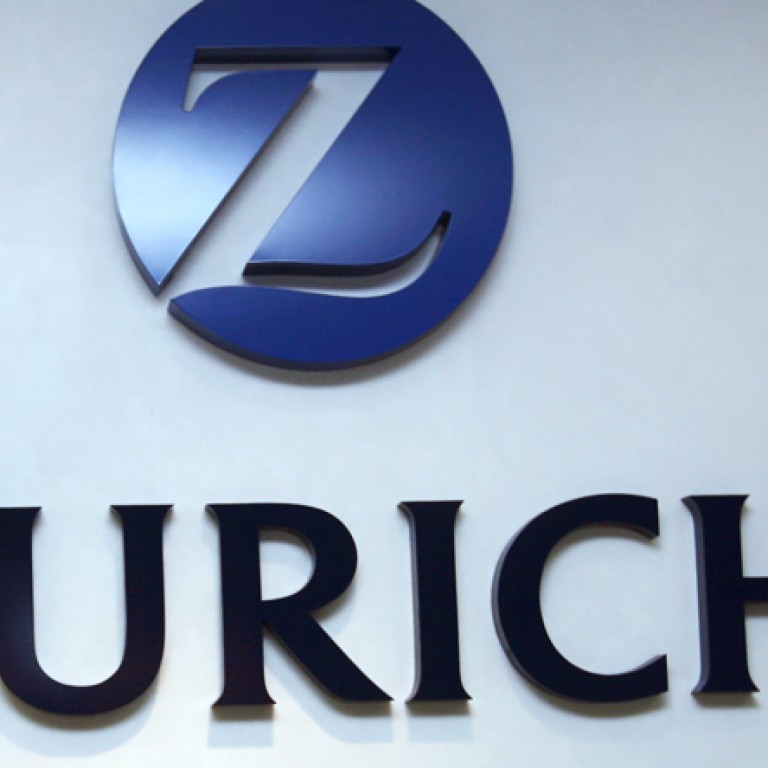
Insurers look to diversification in sales push
Rivals unlikely to follow Zurich in axing agents, but firms are using more channels to lure clients
A decision by Zurich Insurance to stop selling life insurance products in Hong Kong through agents from the end of this year has raised the prospect of a major shift in the city’s HK$75 billion life assurance market.
Many local insurance companies rely on agents to sell products, which in the past resulted in battles between companies to lure top salesmen to their teams.
But in recent years, some insurers have diversified their sales channels to include independent financial advisers (IFAs), banks and direct marketing online or over the telephone.
While most now use a combination of channels, none have yet gone as far as Zurich, which recently announced it plans to dismiss all of its 700 life insurance agents by the end of this year.
Instead, it will rely on brokers and IFAs to sell its products.
“Despite our focus on growing the tied-agency channel for many years, it has not achieved sustainable scale,” Zurich told the South China Morning Post.
“We believe IFA distribution can provide the broadest and most appropriate solutions for our targeted customers to fulfil their protection, wealth management and retirement needs.”
Kisson Lau, executive director of IFA firm Noble Apex Advisors, said insurance companies need at least 2,000 to 3,000 agents to be competitive.
He said additional regulatory requirements in the city had increased the paperwork load for life insurance sales by about 30 per cent.
Even with a small agency team, the company still needed to rent offices for the agents and offer them training and equipment
Lau expects to see consolidation in the industry as insurance firms and brokers grapple with higher operating costs and a more demanding sales environment.
To help cut costs, some insurance firms have relocated sales teams to Kwun Tong and Kowloon Bay, where rents are lower than they are on Hong Kong Island.
A person familiar with the situation said Zurich’s team of agents was too small to compete with those of other big players such as AIA, which has about 9,000 agents; Prudential, with 6,000; Manulife, with 5,500; and AXA, with 4,000.
Zurich tried to expand its team beyond 1,000 agents but had trouble retaining talent, the source said. At the same time, the firm saw that product sales through third-party brokers were increasing.
Another source said Zurich was known for offering an uncompetitive salary package. In general, agents in Hong Kong get paid a small base salary, averaging HK$6,000 to HK$8,000 per month, with the majority of their income coming from commissions.
“Even with a small agency team, the company still needed to rent offices for the agents and offer them training and equipment,” an industry source said.
“The cost is relatively high for a smaller agency team, as they are not big enough to enjoy economies of scale.”
By choosing to sell only through third parties, Zurich will be looking to cut its overheads.
When selling through third parties, insurance firms need to ensure their products are attractive enough to stand out amid the competition, as brokers will normally present a variety of different products to clients for comparison.
According to the Office of the Commissioner of Insurance, there were 621 insurance brokers and IFAs on September 30, employing 9,171 licensed staff.


